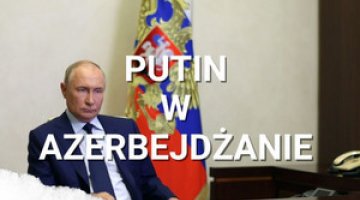Russia’s dilemmas in the Syrian crisis
On 30 June at a conference in Geneva (in which the permanent members of the UN Security Council, Middle East countries and the Secretaries General of the United Nations and the League of Arab States took part), a plan was adopted for a peaceful resolution to the crisis in Syria and the creation of an 'Action Group for Syria' was announced.The final shape of the plan – drafted by the Western and Arab states – was significantly influenced by the Russian delegation led by Foreign Minister Sergei Lavrov. Among other moves, this led to the removal of provisions that would have prevented the Syrian president Bashar al-Assad and members of his regime from participating in any new government. On 6 July, Moscow notably absented itself from the meeting in Paris of the ‘Friends of Syria' group, which gathered Western and Arab countries determined to remove President al-Assad from power. Meanwhile Lavrov did meet representatives of the Syrian opposition in Moscow on 9 and 10 July.
Commentary
- The Kremlin’s main objectives in the current phase of the crisis seem to be as follows: to prevent Western countries intervening in Syria (in the event of a Russian veto, that would have to be carried out without UN sanction); to challenge the legitimacy of the 'Friends of Syria' group and replace it with an 'Action Group for Syria', which would ensure Russia's status as a key international power broker; and to maintain its political and military influence in this country after the possible departure of President al-Assad (this would be possible if at least some members of his team remained in power).
- Moscow's tendency to treat the regime and the opposition equally, as expressed in the dilution of the proposed peace plan, in practice constitutes political support for President al-Assad, and has in effect ensured the failure of the peace initiative. Both the Syrian opposition and the regime’s officials are sceptical about the possibility of establishing a compromise interim government which could carry out the process of political transition in accordance with the plan adopted in Geneva.
- Moscow faces the following dilemma: to what extent should it provide political support to President al-Assad, in a situation where his position is steadily weakening? Russian resistance to political pressure on al-Assad himself and the imposition of sanctions on his regime, as well as its opposition to potential intervention under Chapter VII of the UN Charter, mean in fact that the Syrian question is becoming a source of increasing tension between Russia and the Western countries (particularly the US, which is placing increasing blame on Moscow for the continuation of the Syrian crisis). It seems that Moscow is caught between the pragmatic use of their support for al-Assad as a 'bargaining chip' in its relations with the West, and consistent opposition to any external pressure on Damascus, for fear of a repetition of the Libyan scenario.
- Russia’s position, as well as the fact that it is still supplying the regime in Damascus with military equipment on the basis of previous contracts, also exposes it to a deterioration of its relations with Arab countries, and thereby undermines Moscow’s position in the Middle East, which it has been rebuilding since the middle of the last decade. Russian participation in the Geneva conference, together with its dialogue with the Syrian opposition and its initiative of convening a peace conference in Moscow, should be seen in this situation as propaganda activities designed to create an image of Russia as an impartial mediator, and to remove the odium of being 'the defender of Assad'.
With assistance from Wojciech Górecki




